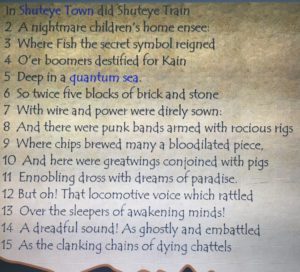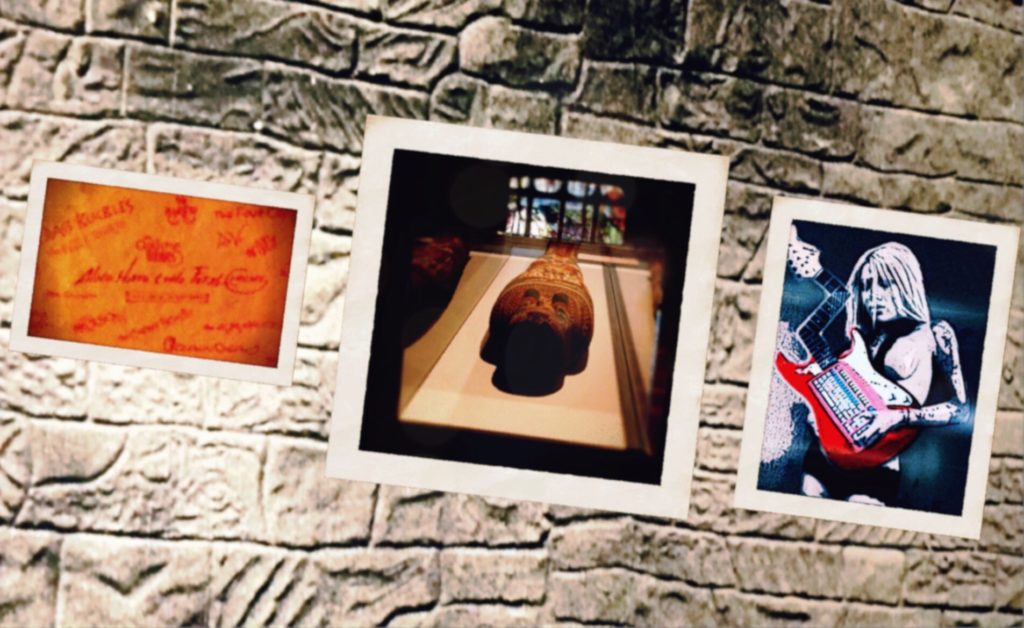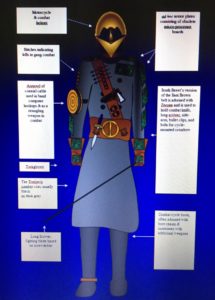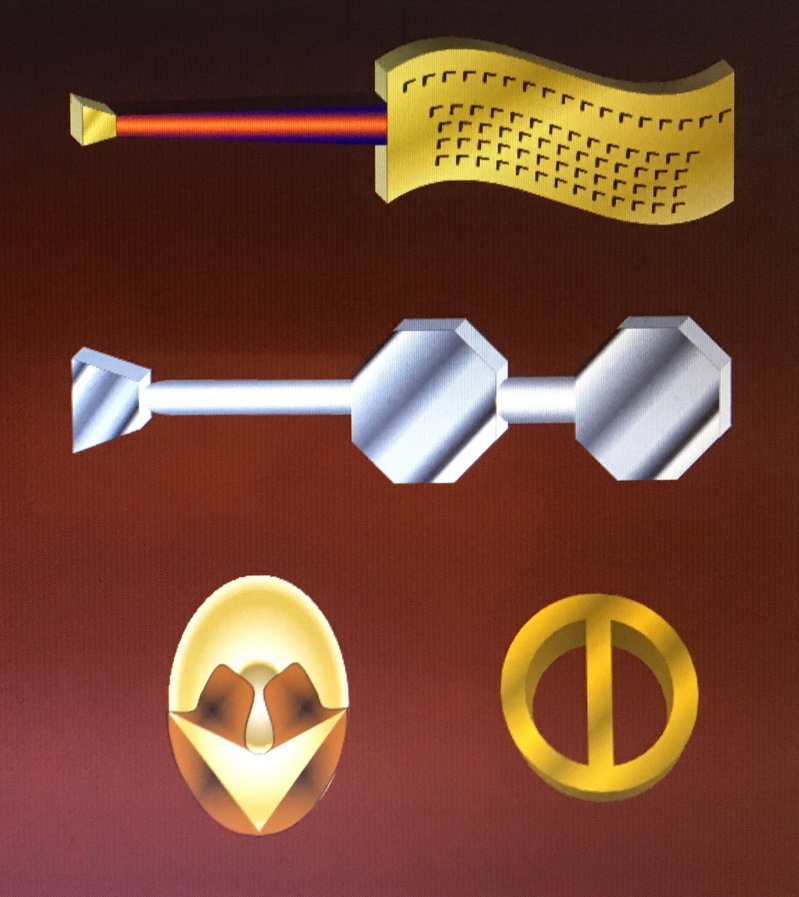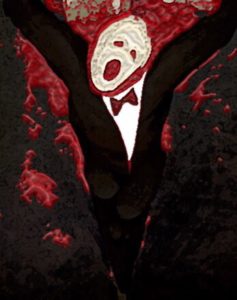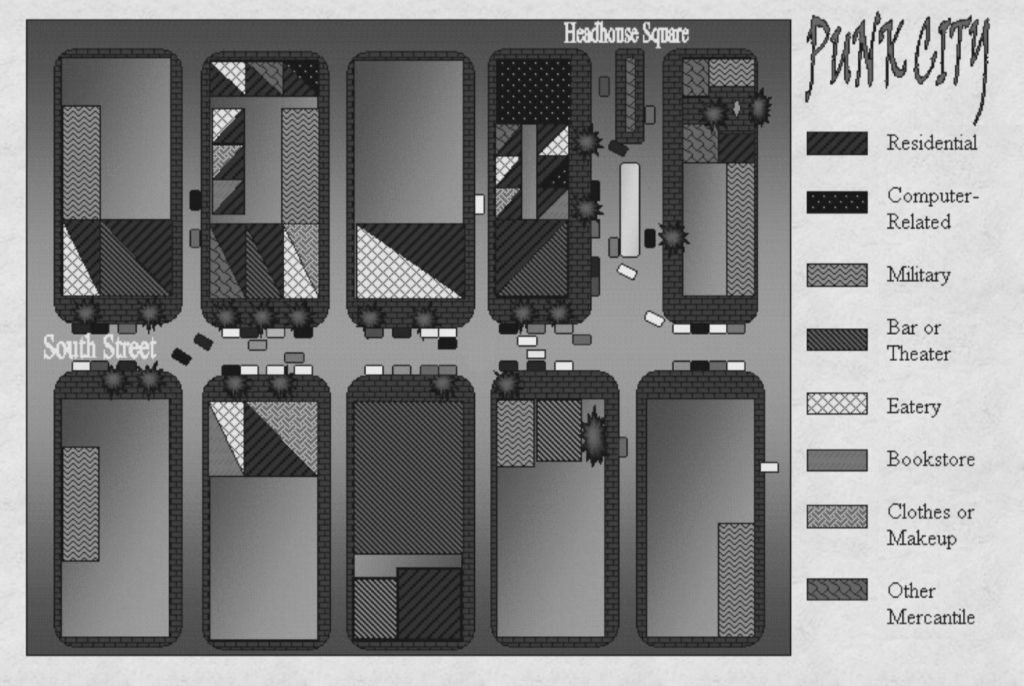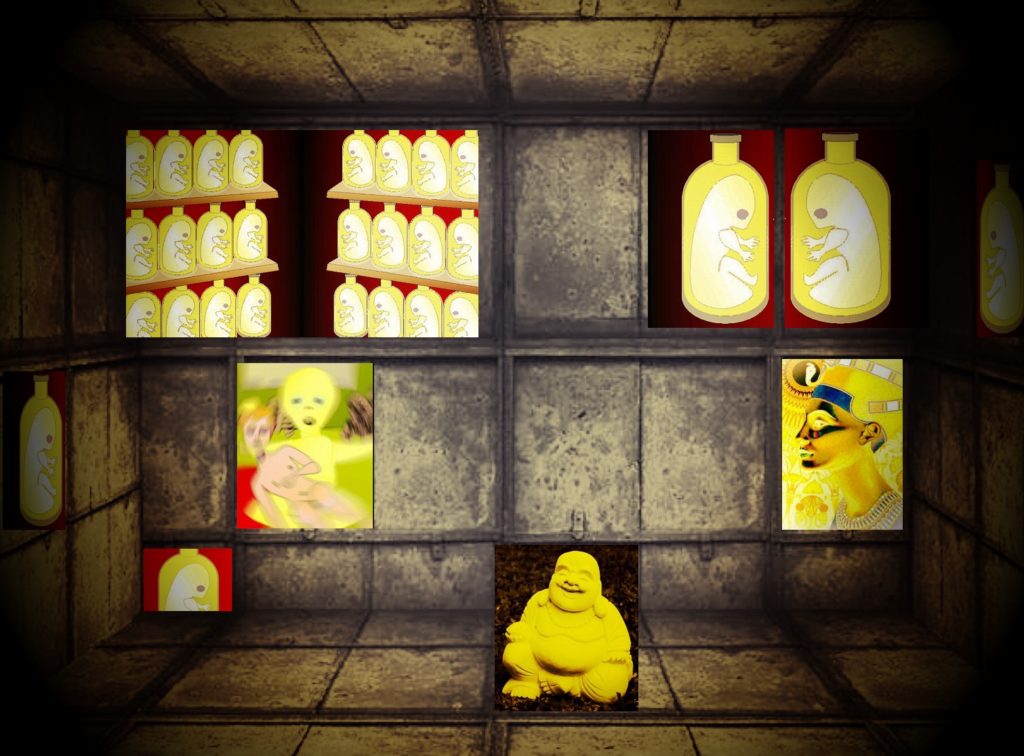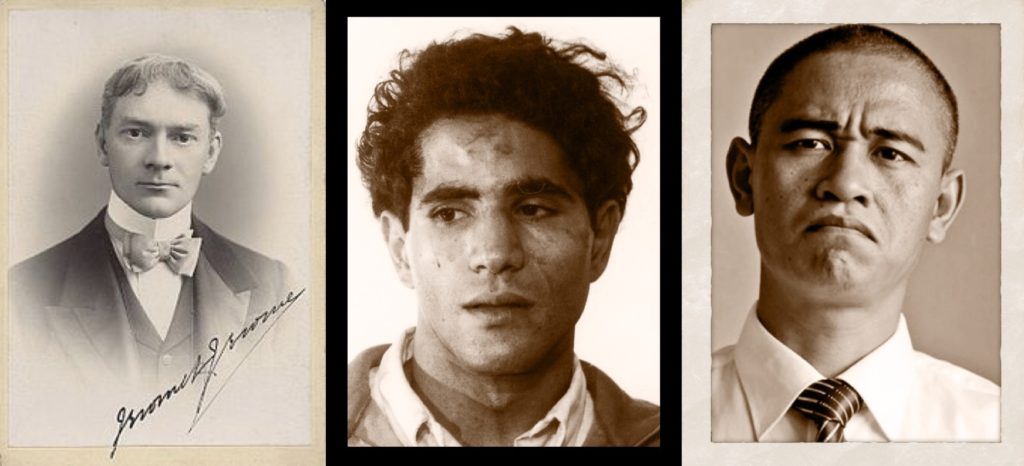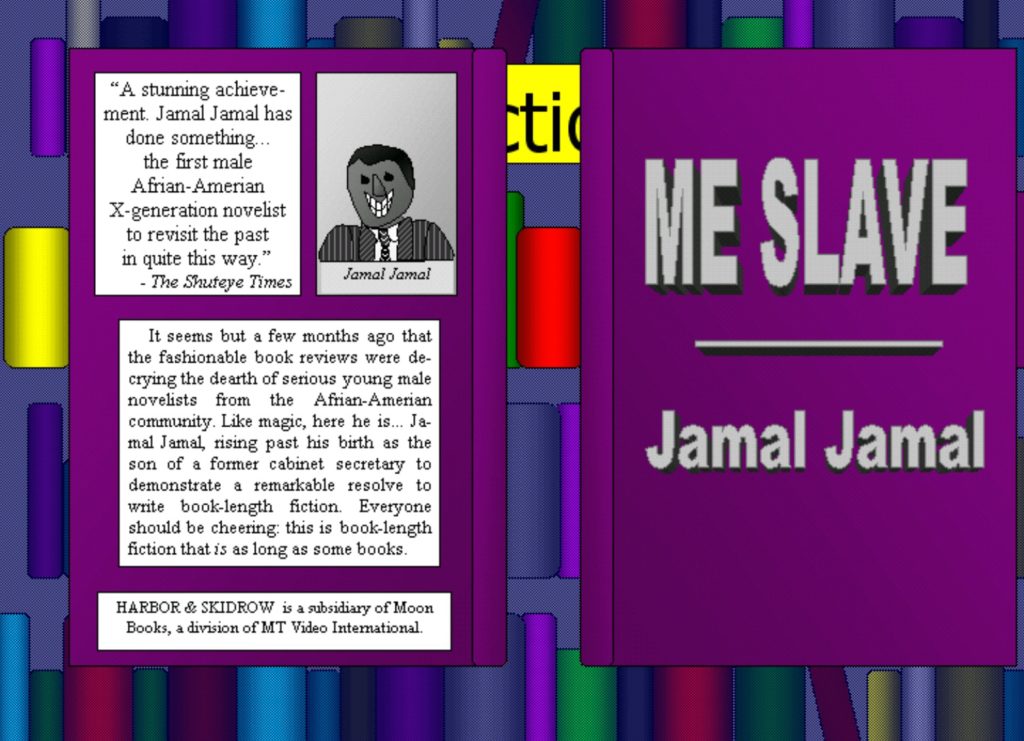
Image processed by CodeCarvings Piczard ### FREE Community Edition
If you haven’t read him, which is likely, you probably have a dim recognition that he is included in what is called the “canon” of literature greats. He wrote a famous book that has given Christians, and specifically Protestants, a bad name and a worse image for coming up on 400 years now. So who is he and why do we care?
Wiki tells us:
“John Bunyan (; baptised November 30, 1628 – August 31, 1688) was an English writer and Puritan preacher[1] best remembered as the author of the Christian allegory The Pilgrim’s Progress. In addition to The Pilgrim’s Progress, Bunyan wrote nearly sixty titles, many of them expanded sermons.
“Bunyan came from the village of Elstow, near Bedford. He had some schooling and at the age of sixteen joined the Parliamentary Army during the first stage of the English Civil War. After three years in the army he returned to Elstow and took up the trade of tinker, which he had learned from his father. He became interested in religion after his marriage, attending first the parish church and then joining the Bedford Meeting, a nonconformist in Bedford, and becoming a preacher. After the restoration of the monarch, when the freedom of nonconformists was curtailed, Bunyan was arrested and spent the next twelve years in jail as he refused to give up preaching. During this time he wrote a spiritual autobiography, Grace Abounding to the Chief of Sinners, and began work on his most famous book, The Pilgrim’s Progress, which was not published until some years after his release.”
It’s hard to argue with putting him in jail, except that it seems to have given him the time and inclination to write Pilgrim’s Progress. Which we should all be very sorry about.
The Author’s Apology for his Book
{1} When at the first I took my pen in hand
Thus for to write, I did not understand
That I at all should make a little book
In such a mode; nay, I had undertook
To make another; which, when almost done,
Before I was aware, I this begun.
And thus it was: I, writing of the way
And race of saints, in this our gospel day,
Fell suddenly into an allegory
About their journey, and the way to glory,
In more than twenty things which I set down.
This done, I twenty more had in my crown;
And they again began to multiply,
Like sparks that from the coals of fire do fly.
Nay, then, thought I, if that you breed so fast,
I’ll put you by yourselves, lest you at last
Should prove ad infinitum, and eat out
The book that I already am about.
Well, so I did; but yet I did not think
To shew to all the world my pen and ink
In such a mode; I only thought to make
I knew not what; nor did I undertake
Thereby to please my neighbour: no, not I;
I did it my own self to gratify…
[More than 30-some deleted stanzas]
This book is writ in such a dialect
As may the minds of listless men affect:
It seems a novelty, and yet contains
Nothing but sound and honest gospel strains.
Wouldst thou divert thyself from melancholy?
Wouldst thou be pleasant, yet be far from folly?
Wouldst thou read riddles, and their explanation?
Or else be drowned in thy contemplation?
Dost thou love picking meat? Or wouldst thou see
A man in the clouds, and hear him speak to thee?
Wouldst thou be in a dream, and yet not sleep?
Or wouldst thou in a moment laugh and weep?
Wouldest thou lose thyself and catch no harm,
And find thyself again without a charm?
Wouldst read thyself, and read thou knowest not what,
And yet know whether thou art blest or not,
By reading the same lines? Oh, then come hither,
And lay my book, thy head, and heart together.
—JOHN BUNYAN
Then he gets started on the story of his Pilgrim, Christian. And everything goes straight to hell, writing-wise, from there.
THE PILGRIM’S PROGRESS
In the Similitude of a Dream
{10} As I walked through the wilderness of this world, I lighted on a certain place where was a Den, and I laid me down in that place to sleep: and, as I slept, I dreamed a dream. I dreamed, and behold, I saw a man clothed with rags, standing in a certain place, with his face from his own house, a book in his hand, and a great burden upon his back. [Isa. 64:6; Luke 14:33; Ps. 38:4; Hab. 2:2; Acts 16:30,31] I looked, and saw him open the book, and read therein; and, as he read, he wept, and trembled; and, not being able longer to contain, he brake out with a lamentable cry, saying, “What shall I do?” [Acts 2:37]
{11} In this plight, therefore, he went home and refrained himself as long as he could, that his wife and children should not perceive his distress; but he could not be silent long, because that his trouble increased. Wherefore at length he brake his mind to his wife and children; and thus he began to talk to them: O my dear wife, said he, and you the children of my bowels, I, your dear friend, am in myself undone by reason of a burden that lieth hard upon me; moreover, I am for certain informed that this our city will be burned with fire from heaven; in which fearful overthrow, both myself, with thee my wife, and you my sweet babes, shall miserably come to ruin, except (the which yet I see not) some way of escape can be found, whereby we may be delivered. At this his relations were sore amazed; not for that they believed that what he had said to them was true, but because they thought that some frenzy distemper had got into his head; therefore, it drawing towards night, and they hoping that sleep might settle his brains, with all haste they got him to bed. But the night was as troublesome to him as the day; wherefore, instead of sleeping, he spent it in sighs and tears. So, when the morning was come, they would know how he did. He told them, Worse and worse: he also set to talking to them again; but they began to be hardened. They also thought to drive away his distemper by harsh and surly carriages to him; sometimes they would deride, sometimes they would chide, and sometimes they would quite neglect him. Wherefore he began to retire himself to his chamber, to pray for and pity them, and also to condole his own misery; he would also walk solitarily in the fields, sometimes reading, and sometimes praying: and thus for some days he spent his time.
{12} Now, I saw, upon a time, when he was walking in the fields, that he was, as he was wont, reading in his book, and greatly distressed in his mind; and, as he read, he burst out, as he had done before, crying, “What shall I do to be saved?”
{13} I saw also that he looked this way and that way, as if he would run; yet he stood still, because, as I perceived, he could not tell which way to go. I looked then, and saw a man named Evangelist coming to him and asked, Wherefore dost thou cry? [Job 33:23]
{14} He answered, Sir, I perceive by the book in my hand, that I am condemned to die, and after that to come to judgement [Heb. 9:27]; and I find that I am not willing to do the first [Job 16:21], nor able to do the second. [Ezek. 22:14]
CHRISTIAN no sooner leaves the World but meets EVANGELIST, who lovingly him greets With tidings of another: and doth show Him how to mount to that from this below.
{15} Then said Evangelist, Why not willing to die, since this life is attended with so many evils? The man answered, Because I fear that this burden is upon my back will sink me lower than the grave, and I shall fall into Tophet. [Isa. 30:33] And, Sir, if I be not fit to go to prison, I am not fit, I am sure, to go to judgement, and from thence to execution; and the thoughts of these things make me cry.
{16} Then said Evangelist, If this be thy condition, why standest thou still? He answered, Because I know not whither to go. Then he gave him a parchment roll, and there was written within, Flee from the wrath to come. [Matt. 3.7]
{17} The man therefore read it, and looking upon Evangelist very carefully, said, Whither must I fly? Then said Evangelist, pointing with his finger over a very wide field, Do you see yonder wicket-gate? [Matt. 7:13,14] The man said, No. Then said the other, Do you see yonder shining light? [Ps. 119:105; 2 Pet. 1:19] He said, I think I do. Then said Evangelist, Keep that light in your eye, and go up directly thereto: so shalt thou see the gate; at which, when thou knockest, it shall be told thee what thou shalt do.
{18} So I saw in my dream that the man began to run.
A very good place in the text for us to follow suit and begin to run. A quick word on John Bunyan’s real literary legacy and the only reason he’s still listed and gets invitations to the annual awards ceremonies. HE IS THE SINGLE MOST BORING, UNREADABLE WRITER IN THE HISTORY OF THE ENGLISH LANGUAGE. (With the possible exception of James Muchener on a bad day; see Muchener’s bestsellor Cretaceous at Moon Books, Shuteye Town.)
Why have we bothered to tell you about Bunyan. Because he makes a good intro to the American writer William Bannitt, who thought he was an unapologetic Bunyanesque evangelical Christian Apologist until they invented computer poker games. But even that didn’t stop him from writing.

William Bannitt. If the Pope were a Harvurd-educated Republian° politician°, he would probably act a lot like former cabinet secretary William Bannitt, writing and tirelessly promoting thousands of books about how we could solve all the country’s problems by reading books written by William Bannitt. (See “Fixing Education,” Moon Books, Shuteye Town 1999.)
Here’s an excerpt from Bannitt’s 1999 Book, on sale at Moon Books in Shuteye Town.
FIXING EDUCATION
Chapter One
The decline of basic values in Amerian public education is no accident. It has been paced by a corresponding decline in the teaching of basic skills, history, and literature. Both trends serve the purpose of isolating children from the taproot of the Amerian moral and legal system in ways that make them powerless to defend themselves against an increasingly suffocating political correctness designed to replace enlightened democracy with a rigidly egalitarian, multicultural mobocracy.
When I was Secretary of Education, I found myself constantly engaged in confrontations with elementary and secondary school bureaucrats who were prepared at every turn to sacrifice attention to literacy problems in favor of endless proposals to foster ‘multicultural awareness,’ ‘gender sensitivity,’ and ‘racial tolerance.’ These bureaucrats were so intent on their aims that they would stoop to any ploy to change the subject. I have had elementary school principals claim they were “unable to understand the words” in my numerous New York Times essays on education. I have met with history teachers who evaded questions about deficiencies in Amerian and Modern European curricula by insisting that they themselves could not identify five important historical dates or list all 50 states of the Union. I have met with math teachers who professed an inability to do long division and English teachers who ostentatiously uttered serial atrocities of syntax, usage, and noun-verb agreement.
I am, of course, aware that there are some competency problems in the public school teacher corps, but I am not so naive as to suppose that an English teacher could have escaped learning grammar twice over in the Greek and Latin studies which used to be required in all the secondary schools I have ever known, from Choate (which I attended) all the way down the ladder to Hotchkiss (which my father’s gardener’s son attended.)
Therefore, I have no alternative but to conclude that such charades of ignorance are expressly designed to provide cover for the ongoing, systematic indoctrination of Amerian youngsters with a set of values that most citizens a generation ago would have denounced as insipid and traitorous. Today, the most successful physician or attorney will also try to change the subject by asseverating an ignorance of the dictionary definition of ‘insipid.’ I am not fooled. I knew dozens of pre-med and pre-law students at Harvard. Their views on the comparative merits of Aquinas and Savonarola might have disappointed on occasion, but they knew what ‘insipid’ meant.
How have we reached this point? How can Amerians continue to turn a blind eye to the compulsory perversion of values which is proceeding under their very noses? Here, the only answer which serves is that the program of propaganda which supports public education’s corrupt curricula is exceedingly clever, intricately organized, and ruthlessly cunning about hiding its agenda under a screen of apathy, ineptitude, and mediocrity. To put it more simply for those who will feign incomprehension, the fix is in. Hence the title of this book.
We cannot afford to let them succeed at this. The plan must be exposed and defeated. The consequences of failing to stop the hidden agenda are almost unthinkable. Try to imagine a graduating high school senior who cannot recite the preamble to the Constitution and its first ten amendments; who cannot write a cogent literary analysis of Shakespeare’s development as a writer from, say, Titus Andronicus to The Tempest; who cannot characterize the strengths and weaknesses of the ten most significant monarchs of England; who cannot explain the distinctions between Galilean and Newtonian discoveries about gravity; who cannot reel off the twelve-times-table at a moment’s notice; who cannot identify the principal organs and their functions in the viscera of a dissected frog; and who cannot name the cabinet-level departments of government and the most powerful chairmen of committees of the U.S. Senate and House of Representatives.
Just imagine it. Yes, I am indeed discussing the prospect of cultural immolation. Arma virumque cano Troiae qui primus ab oris Laviniamque venit. Multa ille terris iactatis et alto. Dux femina facta. Forsan et haec olim meminisse iuvabit. Arma virumque cano Troiae qui primus ab oris Laviniamque venit. Multa ille terris iactatis et alto. Dux femina facta. Forsan et haec olim meminisse iuvabit. Arma virumque cano Troiae qui primus ab oris Laviniamque venit. Multa ille terris iactatis et alto. Dux femina facta. Forsan et haec olim meminisse iuvabit.






